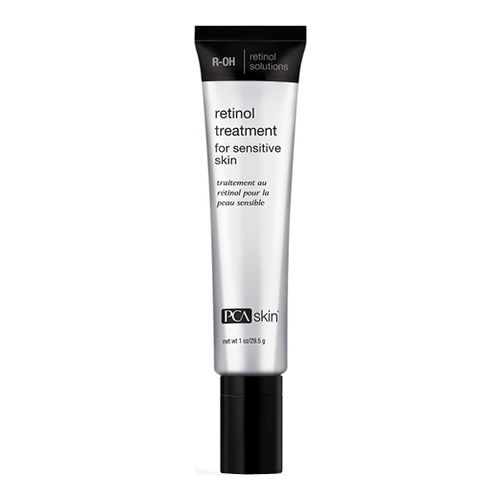April is Rosacea Awareness Month!

Did you know that April is Rosacea Awareness Month? It's the perfect opportunity to educate everyone about this skin condition and raise some awareness on how it manifests itself, how it can be triggered, and the best methods of treating the symptoms.
Rosacea is a chronic disorder of the facial skin, often characterized by flare-ups and remissions. An auto-inflammatory skin condition that can't be cured but can be eased.
There are 4 types of rosacea:
- Erythematotelangiectatic rosacea (ETR), characterized by facial redness, and visible blood vessels.
- Papulopustular (or acne) rosacea, associated with breakouts that resemble acne, and often affects women approaching middle age.
- Rhinophyma (very rare) rosacea, can result in thickening skin on and around your nose. It affects men most commonly and is usually accompanied by another subtype of rosacea.
- Ocular rosacea, that affects the eye area, including eye irritation.
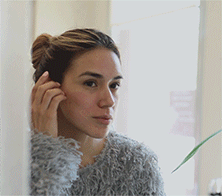
What Causes It?
Doctors don't know exactly what causes rosacea. A few things that may play a role are:
- Your genes. Rosacea often runs in families.
- Blood vessel trouble. The redness on your skin might be due to problems with blood vessels in your face. Sun damage could cause them to get wider, which makes it easier for other people to see them.
- Mites. They're tiny insects. A type called Demodex folliculorum normally lives on your skin and usually isn't harmful. Some people, though, have a heightened sensitivity to the mites, or more of these bugs than usual which could irritate your skin.
- Bacteria. A type called H. pylori normally lives in your gut. Some studies suggest this germ can raise the amount of a digestive hormone called gastrin, which might cause your skin to look flushed.
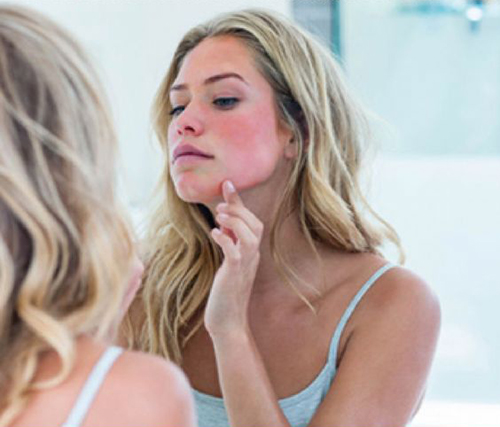
Some things that often trigger rosacea are heat (weather and baths both count here), cold weather, wind, exercise, alcohol, spicy food, caffeine and stress. But just to be clear not everyone is triggered by all of these things.
Eczema vs. Rosacea: Know the Difference
Rosacea is a pretty common diagnosis, especially in women as they age. You may have rosacea if you have redness and some swelling at the center of your face, forehead and cheeks, sensitive skin that can't handle harsh anti-aging products and broken capillaries on your skin creating a ruddy appearance.
If you have dry, itchy skin with a rash that feels scaly chances are you have eczema. More common than Rosacea, Eczema is often found as a rash all over the body. It can be a seasonal issue too, as people often suffer outbreaks in the fall and winter months when the skin barrier dries out and becomes more reactive to allergens. A flare-up will typically begin with itchy skin and when scratched creates red, scaly rashes that sometimes can lead to blisters.
A chronic, inflammatory skin disease that is reoccurring, eczema requires ongoing management to prevent flare-ups. A regular skincare routine for the entire body is important in taking care of the issue long-term. Caused by a combination of environmental and genetic factors, many people diagnosed have a gene mutation that keeps the skin from maintaining a healthy barrier.
How to manage your symptoms?
Let's start with vitamin C, a rockstar ingredient when it comes to helping to manage rosacea. It helps to strengthen capillaries and well, fewer broken capillaries = to less noticeable redness. It also helps bring down general redness, both topically and ingested.
Look for a Vitamin C serum that's specifically manufactured for people with Rosacea. A topical Vitamin C serum composed of pure L-ascorbic acid is often your best bet. Despite popular belief, buying L-ascorbic acid is not the same as simply purchasing Vitamin C; ascorbic acid is an isolated nutrient that is part of Vitamin C.
It's a good idea to start with a lower concentration of Vitamin C to avoid irritation and work your way up to a higher concentration once you know how your skin responds to the product.
Vitamin A is also a key ingredient when it comes to treating the symptoms of rosacea. It's amazing for bringing down inflammation, regulating sebum production, prompting the skin to proliferate and to heal, too. Vitamin A is one of the most important ingredients you can get when it comes to your overall skin health.
Here's a list of the top vitamin C and A for Rosacea-Prone Skin.
This Vitamin C Brightening Cleanser will deep cleanse while treating imperfections with powerful ingredients; powerful Vitamin C works to brighten and promote collagen in the skin. Pigmentation and discolouration are visibly reduced, while the appearance of redness and flushing are calmed.
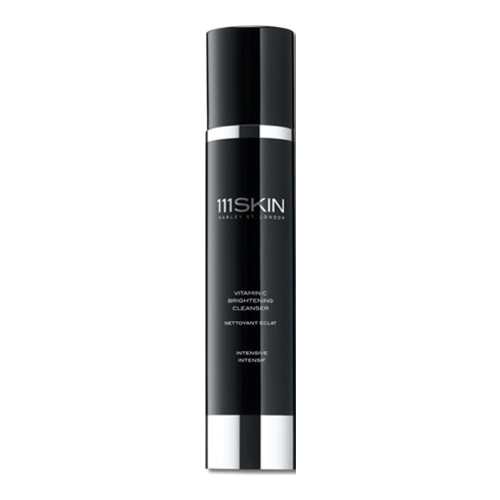
emerginC Multi-Vitamin + Retinol Serum
One of the most comprehensive multi-vitamin serums available that fights free-radical damage, strengthens skin, can diminish the appearance of broken capillaries, hydrates, co-factor in the production of collagen, improves tone and texture, soothes skin, can lessen redness associated with rosacea.
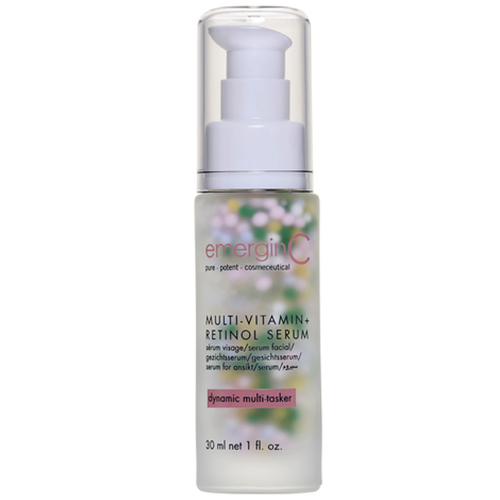
Alyria Anti-Redness Complex
Anti-Redness Complex is formulated with Oleanoline IS, REGU-CEA, BIOPHYTEX and alpha-bisabolol. It will visibly reduce the appearance of skin redness, soothe irritated and dry skin and provide an immediate concealing effect.
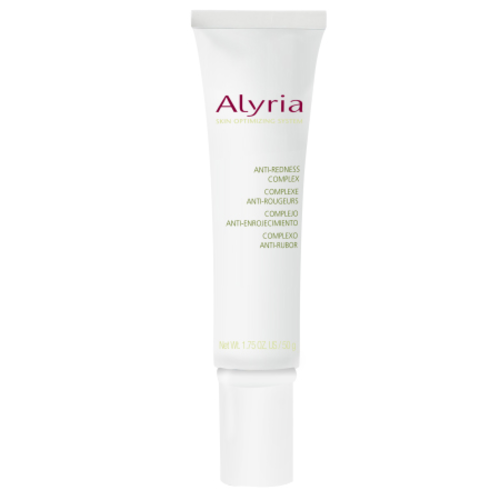
Rhonda Allison ROSACEA RESCUE C-Stem Cell
A gentle form of vitamin C paired with edelweiss stem cells and sodium hyaluronate to strengthen, repair, and hydrate. It will visibly reduce the appearance of skin redness, soothe irritated and dry skin.
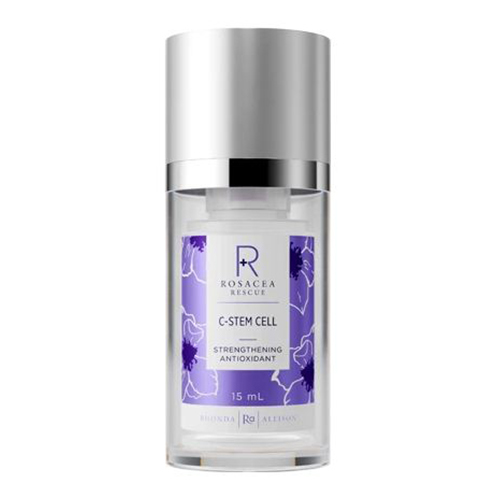
PCA Skin Retinol Treatment for Sensitive Skin
Retinol specifically formulated for sensitive skin that reduces the redness and signs of aging, without causing irritation. Retinol is paired with niacinamide, Inflation and the patented OmniSome delivery system for less irritation without sacrificing efficacy.
